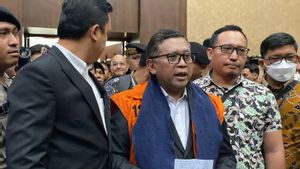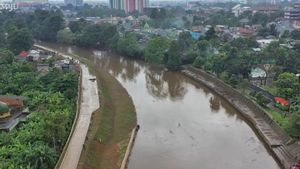JAKARTA - The COVID-19 pandemic or the corona virus has infected hundreds of thousands of people around the world, causing tens of thousands of deaths. As a result, human activity has been paralyzed in many countries. However, there is almost always a wisdom behind a disaster. What is that?
The corona virus outbreak has urged countries in the world to take policies to lock (lockdown) their areas. Indeed, as a result of the outbreak, 275,434 people were infected, 11,399 people were reportedly killed and 88,256 recovered. Citizens' activities have been paralyzed in the two countries most affected by the pandemic: China and Italy.
From that incident, if we look closely, there is almost always a wisdom behind it. Yes, a pandemic will at least reduce levels of pollution and greenhouse gas emissions.
CoolClimate Network researcher - a consortium of climate researchers - University of California, Berkeley, Christopher Jones said; "If we can think about how to prepare for climate change like a pandemic, maybe there will be a positive outcome for all of this," he said, quoting NBC News.
In Italy, the corona virus epidemic which has infected 47,021 people has resulted in 4,032 deaths. Italy's death toll, now more than that of the virus' country of origin, China, has urged their government to lock down the country. Therefore Italy, especially China, has been forced to close their borders and restrict population movements to control infection rates.
In Wuhan, China, the region that is the epicenter of the virus outbreak has already implemented a policy of locking down territories. 11 million people there are under quarantine. The closure extends to several cities, with up to 60 million people in Hubei under lockdown.
Industrial operations in the place of origin of the virus have stalled, and the closure of transportation modes such as air traffic, railways and roads has been temporarily suspended in several areas.
The level of hazardous emissions has decreased
Researcher at the Finnish Center for Energy and Clean Air Research, Myllyvirta, said China's lockdown contributed to a 25 percent reduction in carbon emissions over the four weeks starting at the end of January, compared to the same time last year. Myllyvirta said industrial operations were reduced by 15 percent to 40 percent in several sectors and coal consumption in power plants fell 36 percent.
Based on the pollution monitoring tools of the American Space Agency NASA and the European Space Agency, there was a sharp drop in air pollution in China for two weeks in February when the lockdown took effect. The satellite monitoring measures the concentration of nitrogen dioxide released by motor vehicles, power plants and industry from January 1 to January 20 and from February 10 to February 25.
The results were dramatic. Clouds containing nitrogen dioxide in China look clear in February. NASA scientists say that similar emission reductions have also been observed in other countries.
Nitrogen dioxide over #China has dropped with the coronavirus quarantine, Chinese New Year, and a related economic slowdown. https://t.co/URfLNy0GZJ #NASA # COVID2019 pic.twitter.com/PM60uL772K
- NASA Earth (@NASAEarth) March 4, 2020
"This is the first time I have seen such a drastic reduction over such a large area," said a NASA air quality researcher, Fei Liu, still quoted by NBC News.
Save thousands of lives
Reducing environmental pollution, even according to US Earth System Professor Marshall Burke, could save thousands of lives. Using air sensor data in four Chinese cities he measured levels of PM2.5 - tiny particles thought to be the leading cause of death from air pollution.
"The possibility of saving the lives of 4 thousand children under the age of 5 years and 73 thousand adults over 70 years in China," said Burke was quoted by Forbes.
Burke's calculation is a prediction of the impact of death, which can still change over time. "But those calculations may be a useful reminder of the health consequences that are often hidden from the status quo," Burke said.
The most dramatic effects of reducing pollution levels have occurred in southern Chinese cities such as Shanghai and Wuhan.
The English, Chinese, Japanese, Arabic, and French versions are automatically generated by the AI. So there may still be inaccuracies in translating, please always see Indonesian as our main language. (system supported by DigitalSiber.id)













